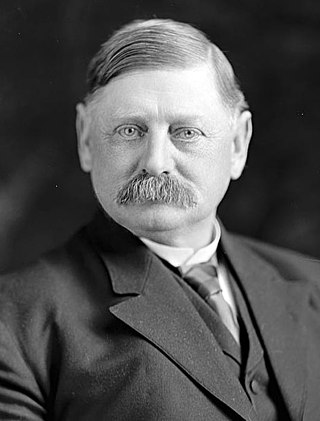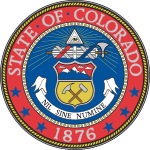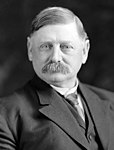
Presidential elections were held in the United States on November 3, 1908. Republican Party nominee William Howard Taft defeated threetime Democratic nominee William Jennings Bryan. Incumbent President Theodore Roosevelt honored his promise not to seek a third term, and persuaded his close friend, Taft, to become his successor. With Roosevelt's support, Taft won the presidential nomination at the 1908 Republican National Convention on the first ballot. The Democratic Party nominated Bryan, who had been defeated twice previously, in 1896 and 1900, by Republican William McKinley.

In the United States Electoral College, a faithless elector is an elector who does not vote for the candidates for U.S. President and U.S. Vice President for whom the elector had pledged to vote, and instead votes for another person for one or both offices or abstains from voting. As part of United States presidential elections, each state legislates the method by which its electors are to be selected. Many states require electors to have pledged to vote for the candidates of their party if appointed. The consequences of an elector voting in a way inconsistent with their pledge vary from state to state.

John Franklin Shafroth was an American lawyer and politician who served as a representative, member of the United States Senate, and Governor of Colorado during the late 19th and early 20th centuries.

Charles Winfield Waterman was a Colorado attorney and politician. He is most notable for his service as a United States senator from Colorado.
The Silver Republican Party, later known as the Lincoln Republican Party, was a United States political party from 1896 to 1901. It was so named because it split from the Republican Party by supporting free silver and bimetallism. The main Republican Party opposed free silver and supported the gold standard. Silver Republican strength was concentrated in the Western states where silver mining was an important industry. A leading spokesman in the House of Representatives was Willis Sweet of Idaho. Silver Republicans were elected to the Congress from several Western states. In both the 1896 and 1900 presidential elections, Silver Republicans supported Democratic presidential nominee William Jennings Bryan over Republican nominee William McKinley.

Jesse Fuller McDonald was an American public official, civil engineer and surveyor, who served as the 16th governor of Colorado from 1905 to 1907.

The 2008 congressional elections in Colorado were held on November 4, 2008, to determine who will represent the state of Colorado in the United States House of Representatives, coinciding with the presidential and senatorial elections. Representatives are elected for two-year terms; those elected served in the 111th Congress from January 3, 2009, until January 3, 2011.

The 2016 United States presidential election in Colorado was held on Tuesday, November 8, 2016, as part of the 2016 United States presidential election in which all 50 states plus the District of Columbia participated. Colorado voters chose electors to represent them in the Electoral College via a popular vote, pitting the Republican nominee, businessman Donald Trump, and running mate Indiana Governor Mike Pence against Democratic nominee, former Secretary of State Hillary Clinton, and her running mate Virginia Senator Tim Kaine. Colorado has nine electoral votes in the Electoral College.

The 2020 United States Senate election in Colorado was held on November 3, 2020, to elect a member of the United States Senate to represent the State of Colorado, concurrently with the 2020 U.S. presidential election, as well as other elections to the United States Senate, elections to the United States House of Representatives and various state and local elections.

The 1924 United States Senate special election in Colorado took place on November 4, 1924, to fill the remainder of the term for which Samuel D. Nicholson was elected in 1920. Nicholson died in office on March 24, 1923, and Democratic Governor William Ellery Sweet appointed Alva B. Adams, a prominent Pueblo attorney, to fill the vacancy. Adams, however, declined to be a candidate in the special election, instead challenging incumbent Republican Senator Lawrence C. Phipps in the regular election the same year.

The 1930 United States Senate election in Colorado took place on November 4, 1930. Republican Senator Lawrence C. Phipps declined to run for re-election, resulting in an open race to replace him. Edward P. Costigan, one of the founding members of the Progressive Party in Colorado and a former member of the United States Tariff Commission, won the Democratic nomination and faced attorney George H. Shaw, the Republican nominee, in the general election. Aided by the nationwide Democratic landslide, Costigan handily defeated Shaw, becoming the first Democrat elected to the Senate from Colorado since 1914.

The 1912 Colorado gubernatorial election took place on November 8, 1912. Democratic state Senator Elias M. Ammons defeated the Progressive, Republican and Socialist candidates future Senator Edward P. Costigan, Clifford C. Parks and Charles A. Ashelstrom with 42.91% of the vote.

The 2020 United States presidential election in Colorado was held on Tuesday, November 3, 2020, as part of the 2020 United States presidential election in which all 50 states plus the District of Columbia participated. Colorado voters chose electors to represent them in the Electoral College via a popular vote, pitting the Republican Party's nominee, incumbent President Donald Trump from Florida, and his running mate Vice President Mike Pence from Indiana, against Democratic Party nominee, former Vice President Joe Biden from Delaware, and his running mate, Senator Kamala Harris from California. Colorado had nine electoral votes in the Electoral College.

The 1918 United States Senate election in Colorado took place on November 5, 1918. It was the second direct U.S. Senate election in Colorado following the ratification of the Seventeenth Amendment, and the first for the Class 2 Senate seat. Democratic senator John F. Shafroth ran for re-election to a second term, and was opposed by Denver businessman Lawrence C. Phipps, the Republican nominee, in the general election. As Republicans made gains nationwide, they performed well in Colorado, too, and Phipps unseated Shafroth by a thin margin.

The 1926 Massachusetts gubernatorial election was held on November 2, 1926.

The 1926 Colorado gubernatorial election was held on November 2, 1926. Democratic nominee Billy Adams defeated Republican nominee Oliver Henry Shoup with 59.84% of the vote.

The 1910 Colorado gubernatorial election was held on November 8, 1910. Incumbent Democrat John F. Shafroth defeated Republican nominee John B. Stephen with 51.04% of the vote.

The 1904 Colorado gubernatorial election was held on November 8, 1904.

The 1908 Utah gubernatorial election was held on November 3, 1908. Republican nominee William Spry defeated Democratic nominee Jesse William Knight with 47.45% of the vote.

The 2024 United States presidential election in Colorado took place on Tuesday, November 5, 2024, as part of the 2024 United States presidential election in which all 50 states plus the District of Columbia participated. Colorado voters chose electors to represent them in the Electoral College via a popular vote. The state of Colorado has 10 electoral votes in the Electoral College, following reapportionment due to the 2020 United States census in which the state gained a seat.






















